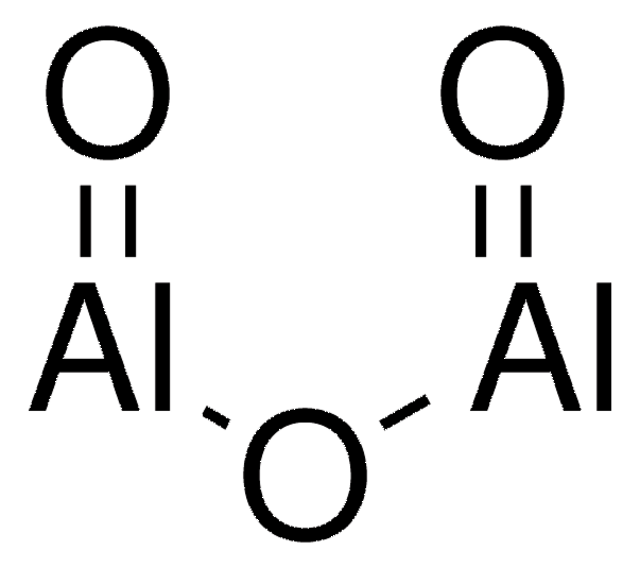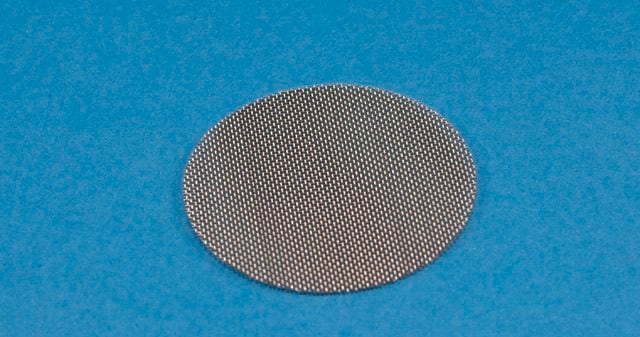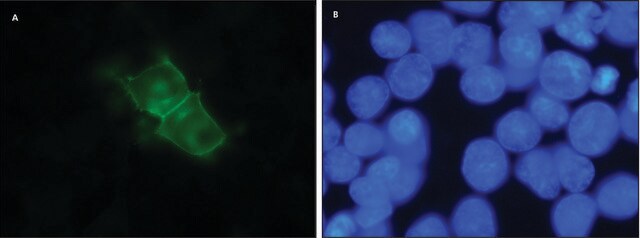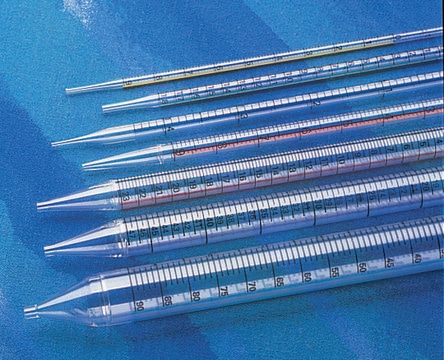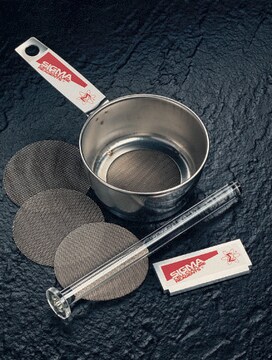03-179
RIPAb+ SUZ12 - RIP Validated Antibody and Primer Set
from mouse
Sinónimos:
ChET 9 protein, Chromatin precipitated E2F target 9 protein, Joined to JAZF1 protein, Suppressor of zeste 12 protein homolog, joined to JAZF1, suppressor of zeste 12 homolog (Drosophila)
About This Item
Productos recomendados
biological source
mouse
Quality Level
clone
monoclonal
species reactivity
human
manufacturer/tradename
RIPAb+
Upstate®
technique(s)
RIP: suitable
immunoprecipitation (IP): suitable
western blot: suitable
isotype
IgG1κ
NCBI accession no.
UniProt accession no.
shipped in
dry ice
Gene Information
human ... SUZ12(23512)
General description
Specificity
Immunogen
Application
Representative lot data.
RIP lysate from HeLa cells (~2 X 10E7 cell equivalents per IP) was subjected to immunoprecipitation using either 5 µg of a normal mouse IgG (Cat. #CS200621), or 5 µg of Anti-SUZ12 antibody (Cat. # CS203201).
20 percent of the precipitated proteins (lane 1: mouse IgG, lane 2: SUZ12) were resolved by electrophoresis, transferred to nitrocellulose and probed with anti-SUZ12 antibody (Cat. # CS203201, 1:1000). Proteins were visualized using One-Step IP-Western kit (GenScript Cat. # L00232)
Arrow indicates SUZ12 (Figure 2).
Western Blot Analysis:
Representative lot data.
Lysates from HeLa cells were resolved by electrophoresis, transferred to PVDF and probed with anti-SUZ12 (1:1,000 dilution).
Proteins were visualized using goat anti-mouse secondary antibody conjugated to HRP and chemiluminescence detection.
Arrow SUZ12 (~95 kDa) (Figure 3).
Epigenetics & Nuclear Function
Chromatin Biology
Packaging
Quality
RIP Lysate prepared from HeLa cells (2 X 10E7 cell equivalents per IP) were subjected to immunoprecipitation using either 5 µg of a normal mouse IgG , or 5 µg of Anti-SUZ12 antibody and the Magna RIP® RNA-Binding Protein Immunoprecipitation Kit (Cat. # 17-700).
Successful immunoprecipitation of SUZ12-associated RNA was verified by qPCR using RIP Primers lincSFPQ, (Figure 1)
Please refer to the Magna RIP (Cat. # 17-700) or EZ-Magna RIP (Cat. # 17-701) protocol for experimental details.
Target description
Physical form
One vial containing 50 μg of protein A purified antibody in PBS containing 0.1% azide, before the addition of 30% glycerol. Store at -20°C.
Normal Mouse IgG -
One vial containing 125 µg of purified mouse IgG in 125 µL of storage buffer containing 0.1% sodium azide. Store at -20°C.
RIP Primers, lincSFPQ -
One vial containing 75 μL of 5 μM of each primer specific for the human lincRNA SFPQ. Store at -20°C.
FOR: TCG TAC TGT TAG GCC CTT GG
REV: AAC CTT GCA TGA AGA GCA CC
Storage and Stability
Handling Recommendations: Upon receipt, and prior to removing the cap, centrifuge the vial and gently mix the solution. Aliquot into microcentrifuge tubes and store at -20°C. Avoid repeated freeze/thaw cycles, which may damage IgG and affect product performance. Note: Variabillity in freezer temperatures below -20°C may cause glycerol containing solutions to become frozen during storage.
Analysis Note
Includes negative control normal mouse IgG antibody and control primers specific for the cDNA of human lincRNA SFPQ.
Other Notes
Legal Information
Disclaimer
Storage Class
10 - Combustible liquids
Certificados de análisis (COA)
Busque Certificados de análisis (COA) introduciendo el número de lote del producto. Los números de lote se encuentran en la etiqueta del producto después de las palabras «Lot» o «Batch»
¿Ya tiene este producto?
Encuentre la documentación para los productos que ha comprado recientemente en la Biblioteca de documentos.
Nuestro equipo de científicos tiene experiencia en todas las áreas de investigación: Ciencias de la vida, Ciencia de los materiales, Síntesis química, Cromatografía, Analítica y muchas otras.
Póngase en contacto con el Servicio técnico